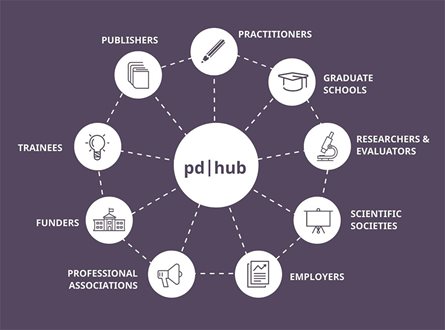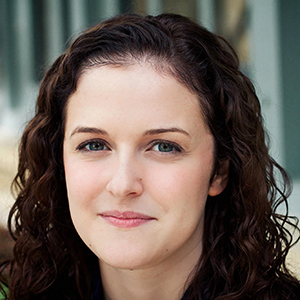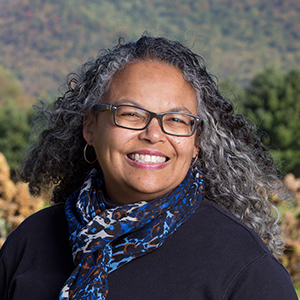Sharpening professional skills to sustain science
For science to be sustainable, all entities involved in the scientific enterprise must be able to recruit, train and retain scientists who can adapt to the evolving needs of the scientific workforce and society. Graduate students and postdocs in biochemistry and molecular biology increasingly express interest in a variety of roles within and beyond academia, and the COVID-19 pandemic has emphasized the value of scientists in diverse roles.
Scientists working in academic and industry labs, in policy and in communications all have made valuable contributions to the fight against SARS-CoV-2. To thrive in their future careers, trainees need to learn both technical and professional skills — from experimental design to written and verbal communication to specific scientific techniques to working in diverse teams.
This vision underlies many of the American Society for Biochemistry and Molecular Biology’s activities, particularly those related to professional development. However, much remains to be done. Looking across the scientific training landscape, approaches remain disparate, leading to inefficiencies in implementation and lack of systematic change.
Many graduate programs require individual development plans, but not nearly as many offer training on how to create and use these plans effectively. Those programs that offer training have had to develop it themselves without a tried and tested method for peer review or dissemination. This also has been our experience as we work to develop high-quality career and professional development at our own institutions; we find it difficult to identify published best practices and efficiently implement new curricula and training.

These systemic challenges were discussed at the ASBMB’s 2016 Summit on Sustaining the Biomedical Research Enterprise, where participants recommended forming a national hub to offer curated, evidence-based resources to catalyze change in biomedical research training. This idea has come to fruition with the creation of the Professional Development Hub (pd|hub).
Forming pd|hub
The organizers of pd|hub aim to effect change with input from the full range of stakeholders for graduate and postdoctoral education. A 2019 workshop organized by pd|hub assembled university leaders, career development professionals, scientific societies, publishers of science and education journals, education researchers, employers, funding organizations, professional associations, and trainees to discuss the challenges and opportunities associated with preparing graduate students and postdocs for diverse career paths.
The workshop identified four key challenges to systemic change and five critical actions for advancing evidence-based practices in Ph.D. career and professional development. Read the full report here.
Challenges to change
- The need for a trainee-centered perspective in Ph.D. training.
- Undervaluation of Ph.D. career and professional development as a core component of training.
- Misaligned incentive and reward structures for enacting change in graduate and postdoctoral education.
- The need for communication and collaboration among stakeholders across local and national efforts to modernize graduate and postdoctoral education.
Critical actions
- Creating incentives for change at institutions and programs and establishing accountability.
- Curating and disseminating resources for evidence-based career and professional development models in a way that supports widespread implementation.
- Broadening and deepening evidence for effective training and mentoring practices that promote career and professional development.
- Improving communication within and across stakeholders in science, technology, engineering and mathematics Ph.D. education.
- Creating standards and defined expectations for STEM Ph.D. career and professional development.

Taking action
pd|hub is taking several actions.
First, organizers are working to develop peer-reviewed collections of evidence-based practices in graduate/postdoctoral education, specifically in professional skills development. Pd|hub is collecting submissions now, and the first collection will be available in 2022. These collections will be a resource for universities, programs and departments seeking to implement or enhance professional skills training for their graduate students and postdoctoral scholars.
Second, six scientific societies, including the ASBMB, have formed a partnership with pd|hub to share ideas and resources and collaborate on a series of projects. Students, postdocs, educators and mentors face similar challenges across scientific disciplines, so it makes sense to work together to address the challenges and take the critical actions that are described. The group’s current project is a series of professional development webinars on graduate student mental health in partnership with the National Academy of Sciences, Engineering and Medicine. The group also hosted a webinar on the art of storytelling in STEM in June 2020.
To learn more or get involved, visit pdhub.org.
Comments
“It is very gratifying and exciting to see how the seed planted at the 2016 Sustainability Summit has grown, though the hard work of many, into such a powerful professional development network that will help the next generation of scientists navigate into satisfying and productive careers in all different aspects of the scientific enterprise.”
— Wes Sundquist, professor and co-chair of biochemistry, University of Utah School of Medicine
“I never expected that the ideas of a few dozen biological science professionals in a room, invited by the ASBMB in 2016, would generate such momentum resulting in the creation of an impactful organization, pd|hub, which is primed to significantly enhance training of the next generation of biomedical and behavioral scientists in the U.S. and beyond.”
— Kenneth I. Maynard, senior director, Takeda Pharmaceuticals Inc.
“Many of the skills graduate students need to develop and challenges they may face in their training are not unique to any one discipline. Additionally, many scientific societies develop similar strategies to support career and professional development or encounter similar struggles in addressing the needs of these members. In this regard, it has been incredibly helpful to collaborate with other scientific societies and pd|hub to share resources and experiences as well as to develop new content that can reach all of our respective audiences.”
— Kirsten Block, director of education, professional development and outreach, ASBMB
“The pd|hub’s integration of equity frameworks along with facilitating collaboration across stakeholder groups has the potential to be transformative for graduate students and postdocs, particularly the most marginalized. Career and professional development opportunities that I pursued while I was a graduate student and postdoc have absolutely positioned me for my current role focused on driving systemic equity in the STEM academy, in my work on an NIH working group, and much more. pd|hub is working to make that the norm."
— Stephani Page, community engagement manager, ADVANCE Resource and Coordination Network
Enjoy reading ASBMB Today?
Become a member to receive the print edition four times a year and the digital edition monthly.
Learn moreFeatured jobs
from the ASBMB career center
Get the latest from ASBMB Today
Enter your email address, and we’ll send you a weekly email with recent articles, interviews and more.
Latest in Careers
Careers highlights or most popular articles

Sketching, scribbling and scicomm
Graduate student Ari Paiz describes how her love of science and art blend to make her an effective science communicator.

Embrace your neurodivergence and flourish in college
This guide offers practical advice on setting yourself up for success — learn how to leverage campus resources, work with professors and embrace your strengths.

Upcoming opportunities
Apply for the ASBMB Interactive Mentoring Activities for Grantsmanship Enhancement grant writing workshop by April 15.

Quieting the static: Building inclusive STEM classrooms
Christin Monroe, an assistant professor of chemistry at Landmark College, offers practical tips to help educators make their classrooms more accessible to neurodivergent scientists.

Unraveling oncogenesis: What makes cancer tick?
Learn about the ASBMB 2025 symposium on oncogenic hubs: chromatin regulatory and transcriptional complexes in cancer.

Exploring lipid metabolism: A journey through time and innovation
Recent lipid metabolism research has unveiled critical insights into lipid–protein interactions, offering potential therapeutic targets for metabolic and neurodegenerative diseases. Check out the latest in lipid science at the ASBMB annual meeting.


